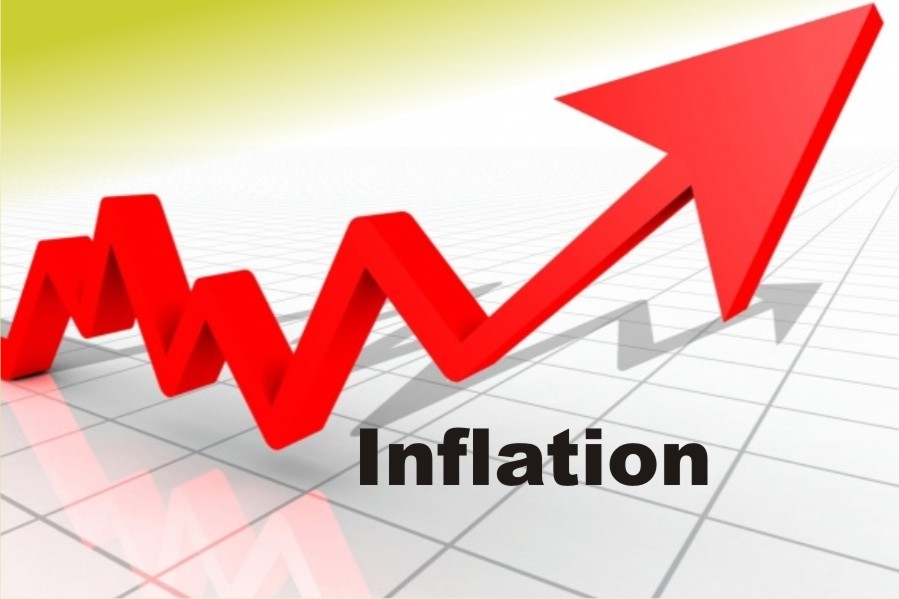- December 2023 headline inflation rate: 28.92% (month-on-month)
- November 2023 headline inflation rate: 28.20% (month-on-month)
- December 2022 headline inflation rate: 21.34% (year-on-year)
- Food inflation remains the primary driver, impacting essential items like rice, garri, and beans.
- Fuel price adjustments and ongoing currency fluctuations contribute to inflationary pressures.
CEM REPORT, ECONOMY | Nigeria’s headline inflation rate surged to 28.92% in December 2023, reaching a new high of 28.92% in December 2023. marking a fresh 17-month high.
The inflation rate rose by 0.72 percentage points from 28.20% in November 2023, and by 7.58 percentage points from 21.34% in December 2022. This relentless climb underscores the deepening grip of inflation on the nation’s economy.
This is as per the latest report from the National Bureau of Statistics in it latest “CPI and Inflation Report for December 2023.”
The sharp increase in inflation reflects the persistent rise in the prices of food, energy, housing, and other essential goods and services across the country. According to the National Bureau of Statistics (NBS), the average consumer price index (CPI), which measures the changes in the prices of a basket of goods and services, increased by 2.29% in December 2023 on a month-on-month basis, compared to 2.09% in November 2023.
The NBS also reported that the annual average CPI for the twelve months ending in December 2023 was 24.66%, up by 5.81 percentage points from 18.85% in the same period in 2022.
Urban Vs Rual Inflation
The inflation rate varied significantly across urban and rural areas, as well as across different states and regions. The urban inflation rate, which measures the price changes in urban areas, was 31.00% in December 2023 on a year-on-year basis, up by 8.98 percentage points from 22.01% in December 2022.
On a month-on-month basis, the Urban inflation rate was 2.42% in December 2023, this was 0.19% points higher compared to November 2023 (2.23%). The impact of inflation is being felt more acutely in urban areas, likely due to a combination of factors, including higher transportation costs and greater reliance on processed foods.
Rural areas, while not immune, are experiencing a slightly slower rise in prices, with a December 2023 inflation rate of 27.10% on a year-on-year basis, up by 6.38 percentage points from 20.72% in December 2022. On a month-on-month basis, the Rural inflation rate in December 2023 was 2.17%, up by 0.18% points compared to November 2023 (1.99%).
State Inflation
On a state level, the highest inflation rate on a Month-on-Month basis, December 2023 recorded the highest increases in Bayelsa (3.66%), Bauchi (3.51%), Oyo (3.45%), while Nasarawa (1.36%), Delta (1.49%) and Sokoto (1.58%) recorded the slowest rise on Month-on-Month inflation.
[READ ALSO] Nigerian Food Inflation Hits 34%, No Abating Signs
On a year-on-year basis was recorded in Kogi (35.58%), followed by Lagos (32.33%) and Rivers (32.16%). The lowest inflation rate on a year-on-year basis was recorded in Borno (23.27%), followed by Taraba (24.92%) and Katsina (26.52%).
Inflation Factors
The NBS attributed the high inflation rate to several factors, including the impact of the COVID-19 pandemic, the depreciation of the naira, the insecurity and conflicts in some parts of the country, the supply chain disruptions, the fuel subsidy removal, the electricity tariff hike, and the border closure.
The high inflation rate has eroded the purchasing power of Nigerians, especially the low-income and vulnerable groups, who spend a large proportion of their income on food, energy, and housing. The high inflation rate has also hampered the economic recovery and growth prospects of the country, as it has discouraged investment, consumption, and production.
Government Measures
The Central Bank of Nigeria (CBN) has responded to the inflation challenge by raising interest rates, but the effectiveness of this measure remains debatable. Some argue that it could further stifle economic growth, while others believe it’s necessary to curb inflation expectations.
Comments
Some economists and analysts have called for urgent and coordinated policy actions to address the inflation challenge and restore price stability in the country. They have suggested measures such as increasing the supply of foreign exchange, improving the security situation, enhancing agricultural productivity, diversifying the economy, strengthening fiscal and monetary policies, and implementing structural reforms.
However, some experts have also cautioned against overreacting to the inflation spike, arguing that it is partly driven by temporary and transitory factors that will fade away as the economy recovers from the pandemic shock. They have also pointed out that some degree of inflation is inevitable and desirable in a growing economy, as it reflects the rising demand and productivity.
The December inflation data presents a stark reality for Nigerians. The struggle to afford basic necessities is intensifying, and the economic outlook remains clouded with uncertainty. As the year progresses, finding solutions to tame inflation and stabilize the economy will be paramount for the Nigerian government and the CBN.








